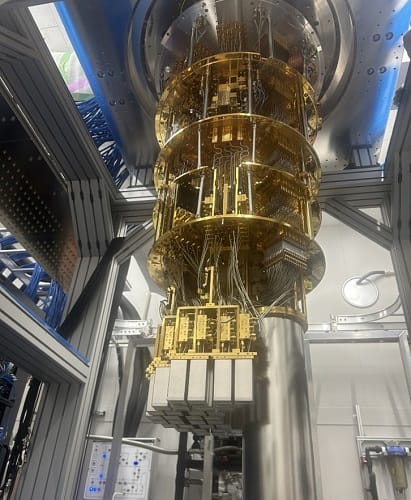Can Japan’s New 256-Qubit Quantum Computer Outpace Global Competitors?

Fujitsu and RIKEN just dropped a quantum bombshell: a 256-qubit superconducting quantum computer that quadruples their previous capacity. But is this enough to leapfrog IBM and Google in the global quantum race? Let’s dive in.
🚀 The Quantum Scaling Problem: Why 64 Qubits Aren’t Enough
- 📉 Limited Real-World Impact: While Fujitsu’s 64-qubit system (2023) was groundbreaking, it struggled with practical applications like simulating large molecules or advanced error correction.
- 🧊 Cooling Constraints: Packing more qubits into dilution refrigerators without overheating has been a major roadblock—until now.
- 🔗 Connectivity Challenges: Traditional 2D architectures limit qubit interactions, slowing progress toward fault-tolerant systems.
✅ Fujitsu & RIKEN’s Quantum Breakthrough: 256 Qubits and Beyond
Their new superconducting quantum computer isn’t just bigger—it’s smarter. Here’s why it matters:
- ✅ 3D Scalability: A modular design using 4-qubit “unit cells” stacked in 3D (see Figure 2) allows seamless scaling from 64 to 256 qubits—without redesigning the core architecture.
- ❄️ Quadrupled Density, Same Fridge: By optimizing thermal design, they fit 256 qubits into the same cooling unit used for 64-qubit systems (Figure 4), slashing costs and complexity.
- 🌐 Hybrid Quantum Platform: Available globally starting Q1 2025, this system enables hybrid algorithms for drug discovery, financial modeling, and error correction R&D.

⚠️ The Road to 1,000 Qubits: Challenges Ahead
- 🚧 Heat vs. Qubits: Even with improved cooling, scaling to 1,000 qubits (planned for 2026) will require breakthroughs in cryogenic engineering.
- ⏳ Global Competition: IBM’s 1,121-qubit Condor and Google’s 70-qubit error-corrected system are setting a fierce pace.
- 🔒 Software Gap: Hardware is useless without algorithms. Fujitsu’s hybrid platform must attract developers to prove its real-world value.
🔮 Final Thoughts: Japan’s Quantum Ambitions Take Flight
Fujitsu and RIKEN’s 256-qubit machine isn’t just a technical marvel—it’s a strategic play. Success hinges on:
- 📈 Hybrid Adoption: Can their platform become the go-to for enterprises testing quantum-classical workflows?
- 🤝 Global Partnerships: Expanding collaborations in finance and pharma will be critical to justify R&D costs.
- 🚀 The 1,000-Qubit Deadline: Hitting their 2026 target could position Japan as a quantum superpower—but delays risk ceding ground to the U.S. and China.
Do you think superconducting qubits will dominate the quantum future—or is another approach like photonics the real dark horse? Let’s discuss!
Let us know on X (Former Twitter)
Sources: Fujitsu and RIKEN develop world-leading 256-qubit superconducting quantum computer, April 22, 2025. https://www.fujitsu.com/global/about/resources/news/press-releases/2025/0422-01.html










